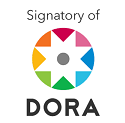Artificial intelligence as a tool to improve critical thinking in elementary school students
Abstract
The purpose of this research was to analyze the influence of Artificial Intelligence (AI) in the development of critical thinking in elementary school students in the Mauroa Municipality, Falcón State. A qualitative phenomenological-hermeneutic study was conducted, based on semi-structured interviews with 20 elementary school teachers who used AI in their pedagogical practices. The data were thematically coded using NVivo and triangulated with national reports and current academic literature. The results obtained showed that tools such as ChatGPT have fostered critical skills (deep analysis and problem solving). In addition, three key barriers were identified: unequal access to technology, insufficient teacher training and lack of inclusive educational policies. It is concluded that AI has transformative potential to personalize learning and strengthen critical thinking supported by: 1) investment in accessible technological infrastructure, 2) teacher training programs focused on critical pedagogy with AI, and 3) public policies that prioritize educational equity.
Downloads
References
Cabanelas, J. (2019). Inteligencia artificial ¿Dr. Jekyll o Mr. Hyde? y Negocios, 40, 5-16. https://n9.cl/zu8w2
Chiroque, S. (2024). Uso de tecnologías de información para mejorar la calidad de atención en municipalidades: Un estudio bibliométrico. Revista Científica de Sistemas e Informática, 4(1), e624. https://n9.cl/r6rc6
Choquehuanca, A., Kuzimoto, K., Muñoz, J., Requena, D, Trejo, R., Vasquez, J., Zenozain, E., y Marín, W. (2024). Emerging technologies in information systems project management. EAI Endorsed Scal Inf Syst, 11(4), 1-9. https://n9.cl/x5zh7
Dávila, R., y Agüero, E. (2023). Desafíos éticos de la inteligencia artificial: implicaciones para la sociedad y la economía. Conrado, 19(94), 137-144. https://n9.cl/7y6vi
Duque Rodríguez, J., Piña Ferrer, L., Isea Argüelles, J., & Comas Rodríguez, R. (2024). Aprendizaje tecnológico desde los primeros años de escolaridad en la era de la inteligencia artificial. CIENCIAMATRIA, 10(18), 151-167. https://doi.org/10.35381/cm.v10i18.1247
Estupiñán, J., Leyva, M., Peñafiel, A., y El Assafiri, Y. (2021). Inteligencia Artificial y propiedad intelectual. Revista Universidad y Sociedad, 13(S3), 362-368. https://n9.cl/jbfxs
Facione, P. (1990). Critical thinking: A statement of expert consensus for purposes of educational assessment and instruction. Millbrae, CA: California AcademicPress. https://n9.cl/nicdzb
Galindo, H., Delgado, N., Campo, L., y Losada, D. (2024). Relationship between teachers’ digital competence and attitudes towards artificial intelligence in education. International Journal of Educational Research, 126, 102381. https://n9.cl/u5z0h
Jiménez, C., Castellanos, O., y Villa, E. (2011). La gestión de tecnologías emergentes en el ámbito universitario. TecnoLógicas, (26), 145-163. https://n9.cl/1sas3
Labrador, J. (2023). Implicaciones éticas de la Inteligencia Artificial en las Ciencias de la Educación. Revista Arbitrada Interdisciplinaria Koinonía, 8(16), 1-3. https://n9.cl/0g050
Lipman, M. (2003). Thinking in Education. Cambridge University Press. https://n9.cl/4z0j2
López, R., Tobón, S., Veytia, M., y Juárez, L. (2021). La mediación didáctica socioformativa en el aula que favorece la inclusión educativa. Revista Fuentes, 23(1), 1-12. https://n9.cl/07cs0
Méndez, C., Isea, J., Chuga, R., y Anamá, R. (2025). Efectos de la Inteligencia Artificial y la digitalización en la formación epistemológica de juristas contemporáneos. Revista Conrado, 21(103), e4467. https://n9.cl/y0qa3
Méndez, X., Valiente, Y., Mantilla, J., y Gonzales, Y. (2025). Transformación digital y su impacto en la gestión empresarial de empresas consultoras de talento humano. Koinonía, 8(Suppl 1), 705-717. https://n9.cl/j5mq0
Morgado, C., Aldana, J., e Isea, J. (2019). Gerencia transformacional desde el accionar docente directivo para el abordaje del Contexto Escolar. CIENCIAMATRIA, 5(9), 48-72. https://n9.cl/8gm7c
Mustafa, F., Mai Nguyen, H., y Gao, X. (2024). The challenges and solutions of technology integration in rural schools: A systematic literature review. International Journal of Educational Research, 126, 102380. https://n9.cl/2gt3qt
Paul, R., y Elder, L. (2014). Critical Thinking: Tools for Taking Charge of Your Learning and Your Life. Pearson Education.
Rivero, C., y Beltrán, C. (2024). La inteligencia artificial en la educación del siglo XXI: avances, desafíos y oportunidades. Educación, 33(64), 5-7. https://n9.cl/1bhut
Sánchez, M. del M. (2023). La inteligencia artificial como recurso docente: usos y posibilidades para el profesorado. EDUCAR, 60(1), 33-47. https://n9.cl/mha3m
Copyright (c) 2025 Ramedis José Rodríguez-Navarro

This work is licensed under a Creative Commons Attribution-NonCommercial-ShareAlike 4.0 International License.
LICENCIA DE CONTENIDO
Creative Commons
Atribución-NoComercial-CompartirIgual 4.0 Internacional (CC BY-NC-SA 4.0)
Política propuesta para revistas que ofrecen acceso abierto
Aquellos autores/as que tengan publicaciones con esta revista, aceptan los términos siguientes:
Usted es libre de:
Compartir — copiar y redistribuir el material en cualquier medio o formato
Adaptar — remezclar, transformar y construir a partir del material
La licenciante no puede revocar estas libertades en tanto usted siga los términos de la licencia
Bajo los siguientes términos:
Atribución — Usted debe dar crédito de manera adecuada, brindar un enlace a la licencia, e indicar si se han realizado cambios. Puede hacerlo en cualquier forma razonable, pero no de forma tal que sugiera que usted o su uso tienen el apoyo de la licenciante.
NoComercial — Usted no puede hacer uso del material con propósitos comerciales.
CompartirIgual — Si remezcla, transforma o crea a partir del material, debe distribuir su contribución bajo la lamisma licencia del original.
No hay restricciones adicionales — No puede aplicar términos legales ni medidas tecnológicas que restrinjan legalmente a otras a hacer cualquier uso permitido por la licencia.
DERECHOS DE AUTOR Y PERMISO
La revista permite que los autores tengan los derechos de autor sin restricciones.
La revista permite que los autores conserven los derechos de publicación sin restricciones; y garantizan a la revista el derecho de ser la primera publicación del trabajo.


















